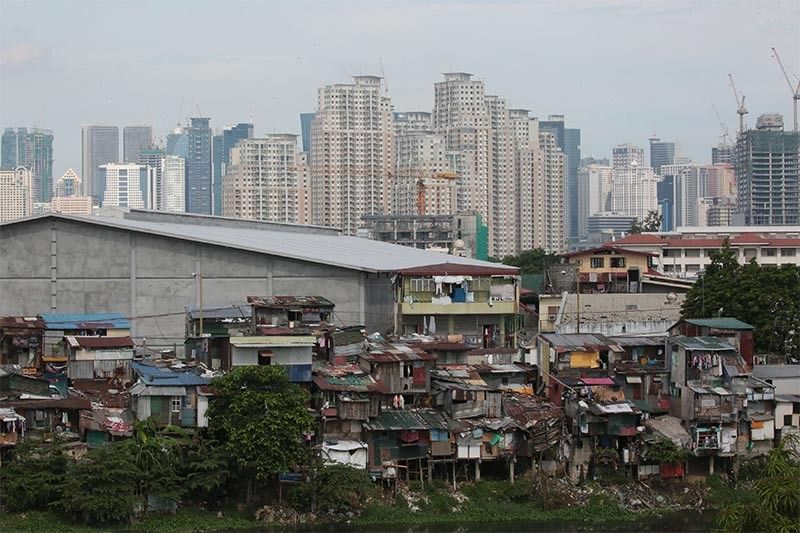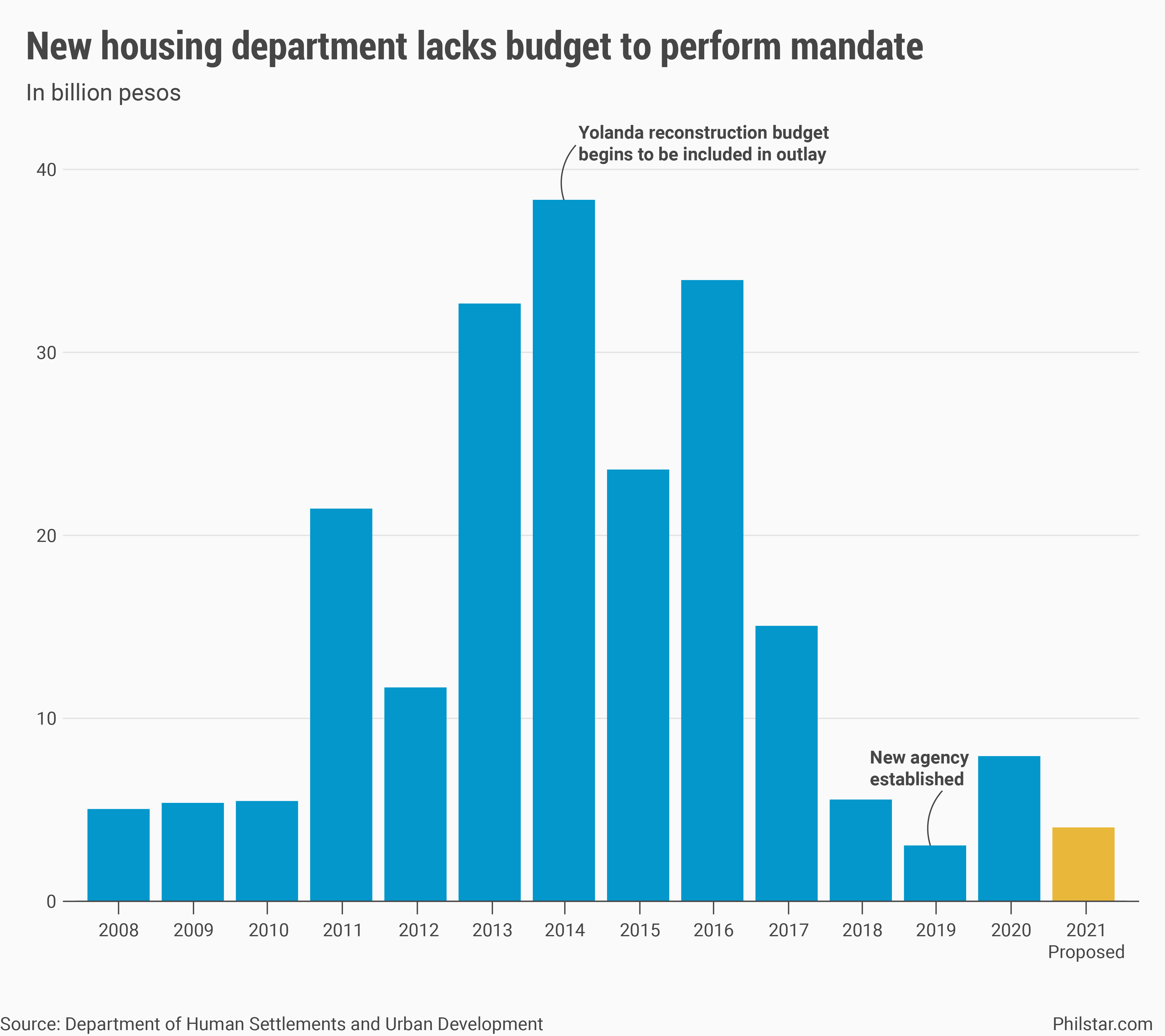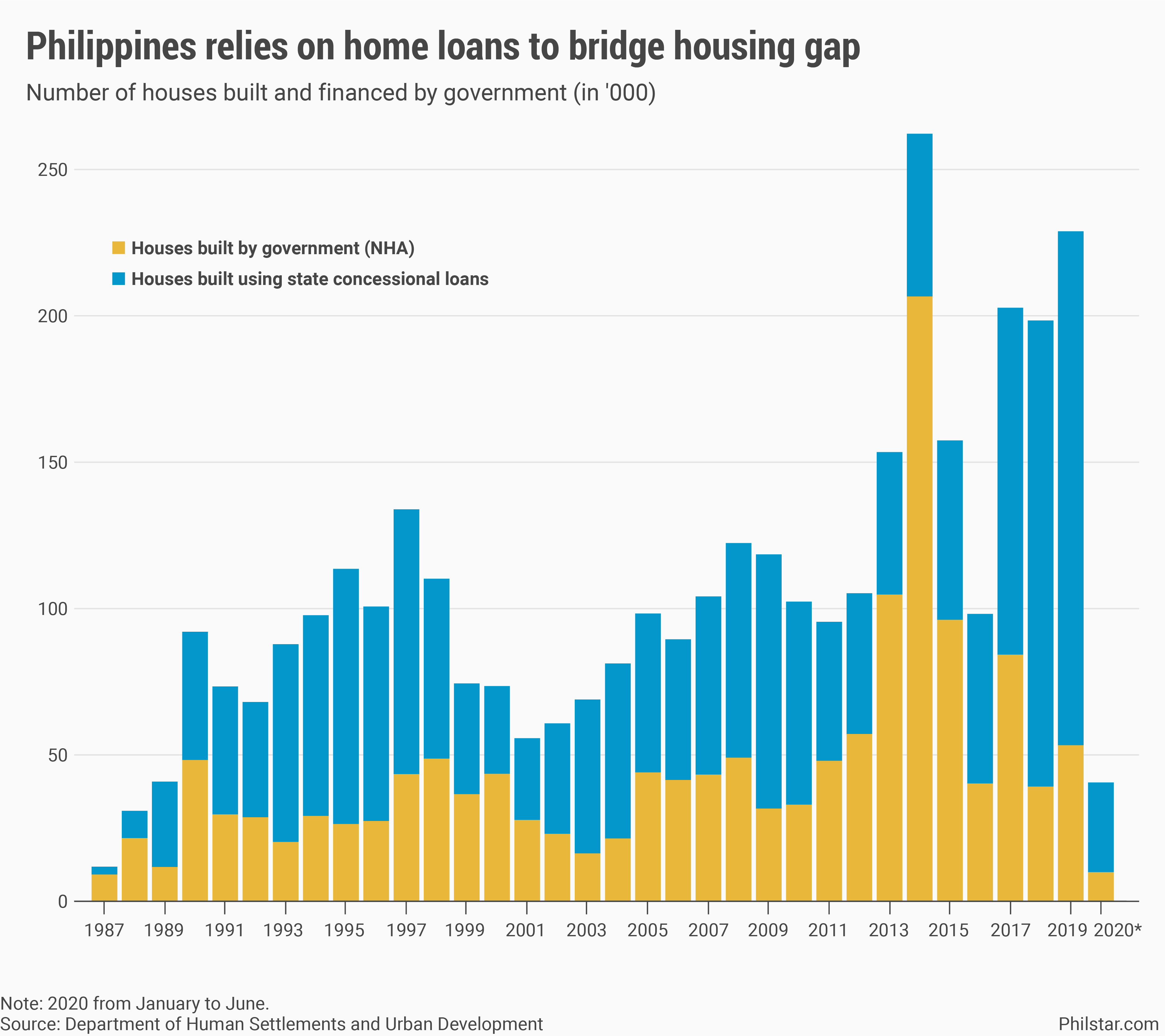Beyond Manila Bay, measly housing budget leaves nothing for slum residents

MANILA, Philippines — No funds will be allocated to relocate residents in slum areas next year as well as loans for the homeless poor, marking the biggest casualty of a measly housing budget persisting under the Duterte administration.
The National Housing Authority (NHA), the government's home-builder, will only have money for Manila Bay resettlement and displaced calamity victims. Beyond that, NHA is tapping into excess funding and collections for next year and in 2022, a short-term fix that senators hearing the housing budget said is tremendously insufficient.
“While shelter is considered a basic human need, our budget is the lowest among all the departments,” housing director Miles Rivera told senators in a budget hearing on Wednesday.
NHA is under the Department of Human Settlements and Urban Development, which has been allocated a measly P3.98 billion for next year, P2 billion of which will go entirely to NHA. This leaves four other agencies, including its head office, sharing in the balance of P1 billion.
As it is, the proposed budget for next year marked a 49.1% slump from this year’s P7.83 billion. The outlay, if approved as is, would corner a meager 0.08% of the total P4.51-trillion budget for 2021.
Senators decried the housing sector's funding gap, which Senate Minority Leader Franklin Drilon said, was incongruent with government calls for people to stay at home to avoid the spread of coronavirus disease-2019 (COVID-19).
Indeed, the consequences of financing shortage can be severe. Marcelino Escalada Jr., NHA general manager, said only 2,000 homes can be constructed for informal settlers next year, specifically for Manila Bay residents displaced by ongoing rehabilitation. Houses would cost P2.72 billion, easily exhausting the P2-billion outlay and a tiny portion of the P1.72 billion in unprogrammed funds.

The balance of P1 billion, meanwhile, would go to emergency housing assistance program catering to calamity victims. But NHA has other programs, too, which would essentially go unfunded next year if legislators do not increase their budget. These include resettlement for slum residents in danger areas as well as free housing for state employees and uniformed personnel.
“For the meantime, your honor, there will be a slowdown in the production of government bousing because of the absence of funds for 2021,” Escalada said of state houses. “In terms of budget coming from GAA (General Appropriations Act), that will be zero.”
The same problem is evident in Social Housing Finance Corp., among the agencies offering home loans at below-market rates. SHFC, which caters to the low income population, will lack money for its Community Mortgage Program that provides loans to poor households. “They have not received any budget even in 2018 and 2019,” Rivera said.
A temporary solution is to tap the NHA’s P73-billion corporate budget, composed of collections from housing arrears and unutilized outlays in previous years. But the amount hardly meets the P900 billion needed to close the gap in housing informal settlers. Senate President Pro Tempore Ralph Recto encouraged the agency to seek the private sector’s help.
“Clearly government cannot do it alone,” he said.
Left out
Why housing is left out of government’s recovery strategy was beyond senators, especially with the administration spending over P1 trillion in infrastructure next year.
Of the 6.5 million housing backlog, 30% or 1.95 million is estimated to be for slum dwellers which government should relocate. The estimate has not been updated for years, however, and demand for shelters rises around 20% each year, which means that the shortage now may be bigger.
The balance of 70% is for the formal sector or people who can finance their own homes with just some assistance. This is where the likes of SHFC and Pag-IBIG enter through their loans.
For this year, the pandemic already disrupted home building. From the original target of 265,778 houses built and funded before the health crisis, the government lowered that to 191,748, down 27.6% year-on-year.

Of the total, only 48,480 will be built by NHA, some of which have started in previous years and only to be completed this year, while what remains would be financed by loans.
Halfway into the year however, the target is at risk of being missed despite getting lowered already due to lockdowns. From January to June, only 39,316 shelters had been built or funded, 9,820 of which by NHA.
- Latest
- Trending
































